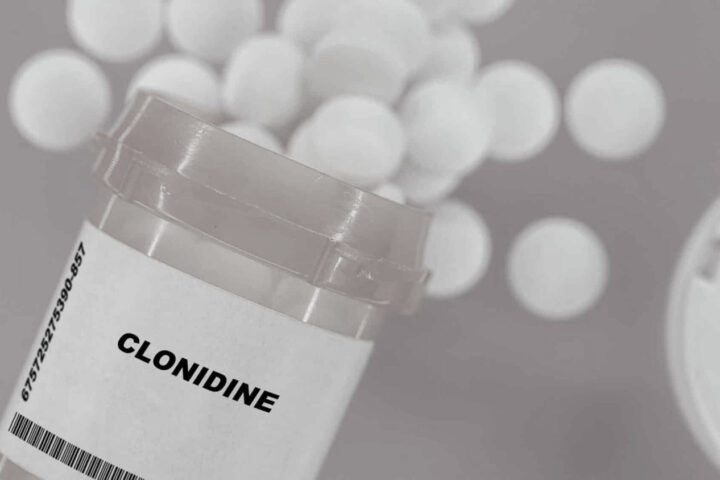When it comes to opiate addiction and recovery, one of the greatest barriers individuals face is the stigma associated with it. Stigma creates a culture of judgment, shame, and isolation, making it even more challenging for people seeking help on behalf of themselves or their loved ones. It’s time to break free from the chains of stigma and embrace a compassionate and evidence-based approach to addiction and recovery.
- Understanding the nature of addiction: Addiction is not a moral failing or a lack of willpower; it is a complex medical condition that affects the brain and behavior. By acknowledging addiction as a disease, you can start to let go of the blame and judgment that often accompany it. Recognize that addiction can happen to anyone, regardless of their background, and it is not a reflection of their character.
- Exploring the 12-step philosophy: The 12-step philosophy, popularized by organizations like Alcoholics Anonymous (AA) and Narcotics Anonymous (NA), offers a framework for recovery that has helped millions of people worldwide. It emphasizes the importance of admitting powerlessness over addiction, seeking support from a higher power or group, and making amends. This approach provides a sense of community, accountability, and spiritual growth.
- Embracing evidence-based therapy: While the 12-step philosophy has been effective for many, it’s crucial to recognize that different approaches work for different individuals. Evidence-based therapies, such as cognitive-behavioral therapy (CBT), dialectical behavior therapy (DBT), and medication-assisted treatment (MAT), have shown promising results in treating opioid addiction. These therapies focus on understanding the underlying causes of addiction, developing coping strategies, and promoting long-term recovery.
- Challenging stigmatizing beliefs: Stigma surrounding opiate addiction often stems from misunderstandings and false assumptions. Challenge these stigmatizing beliefs by educating yourself and others. Learn about the science behind addiction, its impact on the brain, and the factors that contribute to its development. By sharing accurate information, you can help dispel myths and foster a more empathetic and supportive environment.
- Promoting open and honest communication: Breaking through the barriers of stigma requires open and honest communication. If you are seeking help for yourself or supporting a loved one, don’t be afraid to reach out for assistance. Seek support from friends, family, or professional counselors who can provide a safe space for sharing thoughts and emotions. Remember, asking for help is a sign of strength, not weakness.
- Building a network of support: Recovery is a journey that is best traveled with others. Encourage your loved ones to join support groups, attend therapy sessions, or engage in community activities centered around recovery. By building a network of support, you create a sense of belonging and accountability that can significantly enhance the recovery process.
Thought-provoking questions:
- How can we challenge our preconceived notions about addiction and embrace a more compassionate understanding?
- What steps can we take to educate ourselves and others about the science behind addiction and recovery?
- How can we support individuals in finding the treatment approach that works best for them?
- How can we promote a culture of open communication and eliminate the fear of judgment and shame?
- What can we do to encourage community involvement and support for individuals in recovery?
- How can we break the cycle of stigma and create a society that embraces and supports those seeking help for opiate addiction?
Remember, addressing stigma is a collective effort that requires compassion, education, and open-mindedness. By challenging stigmatizing beliefs and embracing evidence-based therapies, we can create a more inclusive and supportive environment for individuals on their journey to recovery.
These advancements are aimed at providing greater understanding, support, and effective treatment options. Here are some of the latest developments that can help you or your loved ones in addressing the perception of opiate addiction and recovery:
- Increased awareness campaigns: Organizations, communities, and healthcare providers are actively working to raise awareness about the nature of addiction and challenge stigmatizing beliefs. Through public education initiatives, media campaigns, and community events, efforts are being made to promote empathy, understanding, and compassion towards individuals facing addiction.

- Expanding access to evidence-based therapies: There has been a growing recognition of the need to provide access to evidence-based therapies for opiate addiction. This includes therapies such as cognitive-behavioral therapy (CBT), dialectical behavior therapy (DBT), and medication-assisted treatment (MAT). These approaches have proven to be effective in helping individuals manage cravings, develop coping skills, and sustain long-term recovery.
- Integration of peer support networks: Peer support programs, such as recovery coaching and peer mentoring, are gaining momentum in the addiction recovery community. These programs connect individuals with lived experience in recovery to offer guidance, understanding, and encouragement. Peer support networks can play a vital role in reducing stigma, providing a sense of belonging, and fostering hope and inspiration.
- Emphasis on holistic approaches: Recognizing that addiction affects various aspects of an individual’s life, holistic approaches to treatment are gaining prominence. These approaches take into account the physical, emotional, and social dimensions of recovery. They may include activities such as mindfulness, yoga, nutrition counseling, and vocational training, all aimed at promoting overall well-being and a sustainable recovery journey.
- Personalized treatment plans: There is a growing understanding that a one-size-fits-all approach may not be effective in treating addiction. Tailored treatment plans that consider an individual’s unique needs, preferences, and circumstances are becoming more common. This personalized approach allows for a comprehensive and targeted treatment strategy that maximizes the chances of successful recovery.
- Promoting harm reduction strategies: The focus has shifted from a punitive approach to a harm reduction approach when addressing addiction. Harm reduction strategies aim to minimize the negative consequences associated with drug use while providing individuals with support and resources to improve their overall health and well-being. These strategies can include needle exchange programs, access to naloxone (an opioid overdose reversal medication), and safe injection sites.
By staying informed about these latest developments and incorporating them into your own journey or supporting a loved one, you can actively contribute to overcoming the stigma surrounding opiate addiction and recovery. Remember, change starts with you, and by embracing a compassionate and open-minded approach, you can make a difference in the lives of those affected by addiction.



